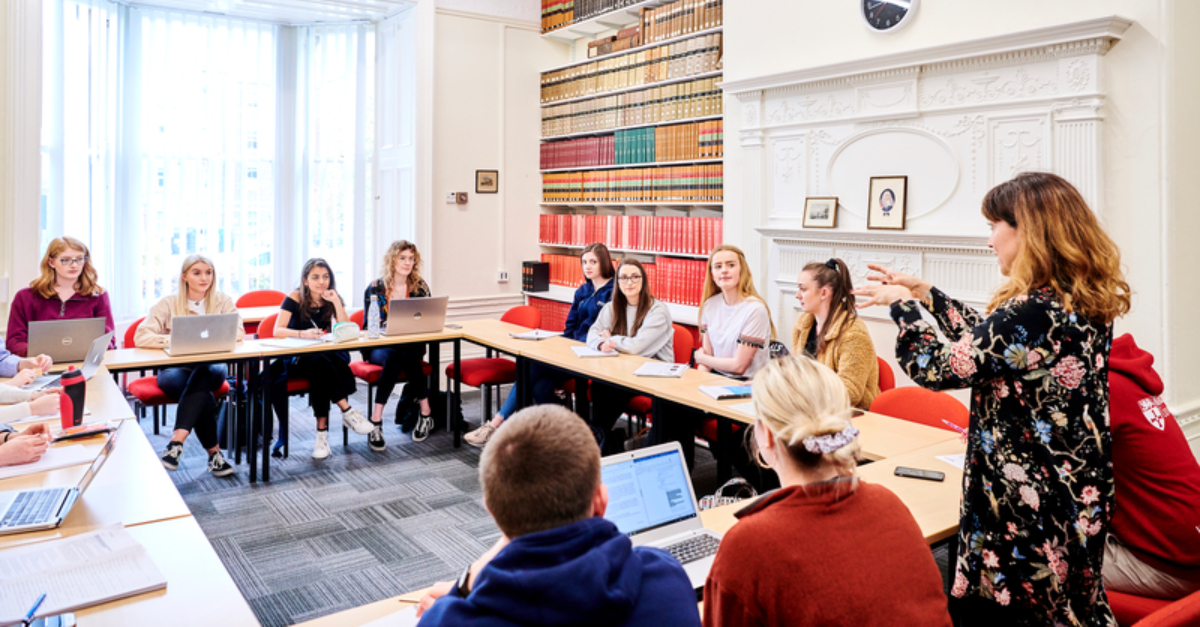
Read our blog by Master's student, Hannah, to find out why she chose to study an MRes degree.
Applying to postgraduate programmes became one of the most confusing challenges I’d ever faced. Finding a programme that matched what I wanted, a price I could afford, and finish with a degree that would benefit my career were just some of the criteria I looked for in a postgraduate university.
At times, it felt overwhelming and I hope this blog helps to ease that feeling for future postgraduate students...
Reasons why I chose a research Master's
On a sunny April day in Michigan, I took out a chalkboard and wrote down the seven universities I was accepted to. I had to make a decision and writing a pro and con list was the fastest way to achieve my goal.
It didn’t take long to find the one word that stood out among the rest – research. Newcastle University was the only school that accepted me into a research Master’s programme, the rest being standard taught courses. Because of my career goals, I knew that a research Master’s was my perfect fit.
A research programme at Newcastle is the best of both worlds. The first term (September – January) is the taught portion just as you’d find in a taught programme. With a Master’s in Research degree in Epidemiology, I selected modules that would suit my interests and future career aspirations.
My week was composed of classes such as Global Health, Immunobiology of Human Disease and Clinical Epidemiology – all being taught by experts in their respective fields.
My week was composed of classes such as Global Health, Immunobiology of Human Disease and Clinical Epidemiology – all being taught by experts in their respective fields. The classes followed the normal flow of a taught course, weekly classes with either a couple of exams or essays at the end of term.
While the taught component was vital to my degree, the research portion gave me an advantage over other entry-level epidemiologists.
What's the difference between a taught and research Master's?
The main difference between the two types of programmes occurred during the second term. After finishing the final exams for the first term, I started the research portion.
Those in taught programmes continued on with a full class load for their second term, while I focused solely on my research. While this may not seem that important, it gave me practical knowledge of epidemiological studies and hands-on experience.
Starting in February and ending in August, I conducted independent epidemiological research using data from a national data bank in the UK. Those in taught programmes continued on with a full class load for their second term, while I focused solely on my research. While this may not seem that important, it gave me practical knowledge of epidemiological studies and hands-on experience.
Instead of learning the information in a classroom, I was learning it in real time as I conducted my research. Personally, this was the best way for me to learn and understand the material. I could take what had been taught in classes the previous term and apply it in the real world, something I never would have been able to do in a taught Master’s programme.
By conducting my research, I have been able to use statistical software programmes that companies require knowledge on, worked with international data banks, and successfully presented my findings to a varied audience. My CV lists these new skills and states that I have practical knowledge instead of theoretical – an asset in this job market.
My next chapter...
While I never want to leave this school or the amazing people I’ve come to call family, I know that I am ready. I’m ready for the world and the scary thing that is the ‘job market’. My research programme was perfect for my career goals and has allowed me to gain the experience I need to be successful in my future career. Newcastle University and my MRes programme has given me the tools to take on the world and achieve the goals I’ve set for myself.
We hope you have found this blog post on the difference between research and taught Master's useful. If you're still researching Master's degrees, why not read our latest student blog by Amy Harris on sourcing Master's funding?

Ranked among the UK’s Top 10 for Postgraduate opportunities and services by the WhatUni Student Choice Awards 2025 - trusted recognition from real students
